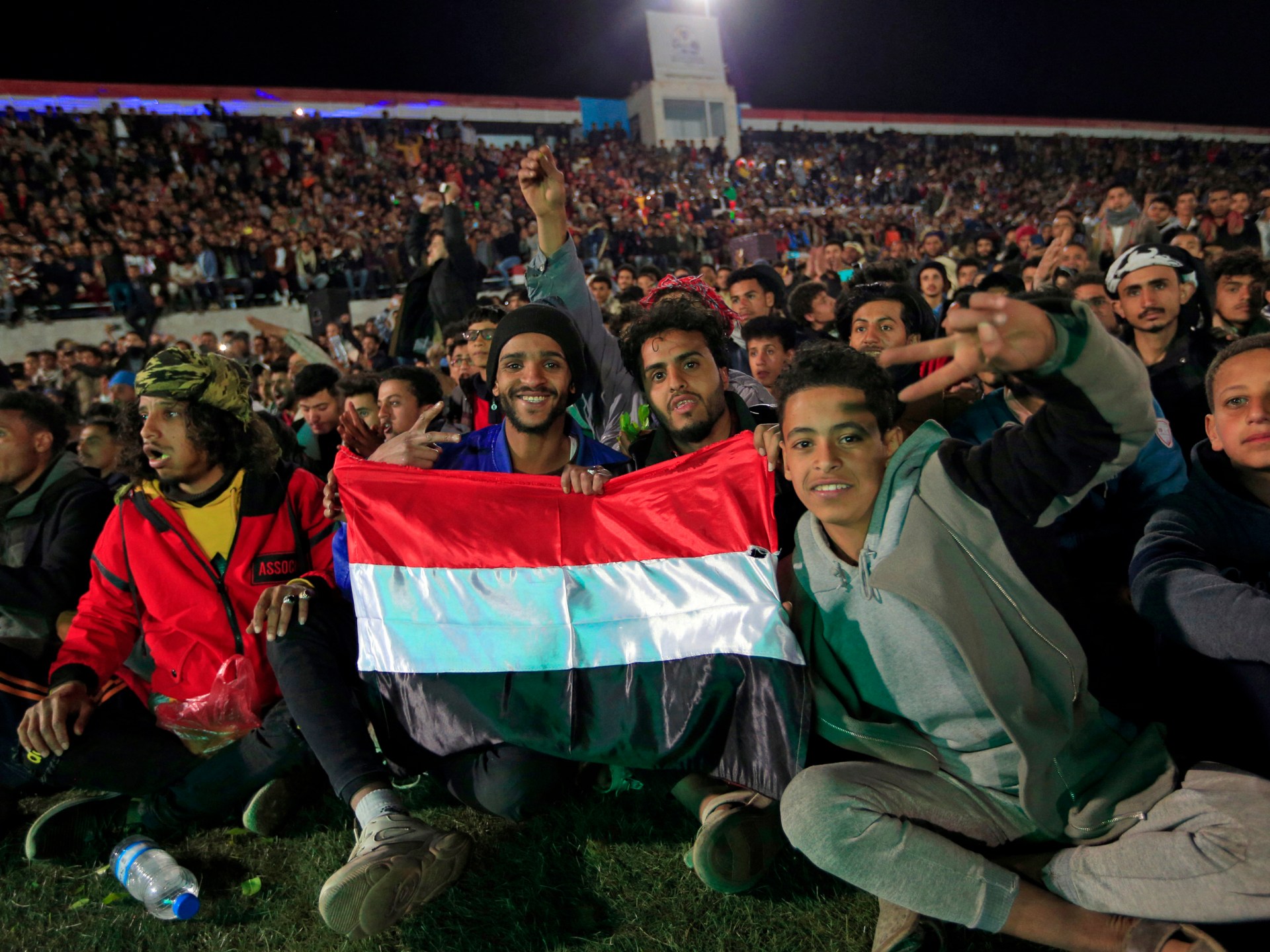The clash this week between Yemen and Sri Lanka in the 2026 World Cup qualifiers is set to be one of the most significant matches in the coming years. With hundreds of qualifiers happening across the globe, this matchup holds special meaning.
On Thursday, Asia’s weakest 20 teams, based on FIFA rankings, will compete in 10 two-legged ties. The return matches will take place next week. The winners will have the opportunity to progress to the second round, a group stage consisting of six more games against tougher opponents.
Both Yemen and Sri Lanka are in desperate need of games and revenue.
Sri Lanka, ranked 202nd in the world, is the lowest-ranked team in Asia but recently had a FIFA ban lifted due to governance issues.
Yemen, ranked 156th, may be turning the corner after years of chaos and conflict.
The Yemeni national team is just 180 minutes away from the second round of World Cup qualification. If they advance, they will face the United Arab Emirates, Bahrain, and either Nepal or Laos in their group.
Finishing in the top two of that group is not impossible for Yemen and would secure them a spot in the final stage. In the final stage, Asia’s top 18 teams compete for one of the continent’s eight automatic World Cup spots, a significant increase from 2022.
For Yemen, this is a dream come true. Even being in contention is a step in the right direction.
“Progression to the group stage would provide valuable experience for the players as they face demanding international matches,” said Yemen’s coach, Miroslav Soukup.
The Czech boss is not taking their South Asian opponent lightly, despite their low ranking. “Sri Lanka has strengthened their national team by engaging players from overseas competitions, making it difficult for us to succeed,” he said.
However, Yemen is the favored team. Their 57-year-old coach returned for a second term in November, hoping that off-pitch developments would lead to success on the field.
‘A Positive Step’
In 2014, Yemen’s capital, Sanaa, fell into the hands of the Houthi armed group. A Saudi-led coalition intervened in 2015, sparking eight years of conflict that devastated the nation.
The death toll in Yemen has reached over 370,000, with 227,000 victims succumbing to hunger, unsafe water, and lack of healthcare.
Despite the turmoil, the domestic league hasn’t been able to play regularly. Unofficial games and cup competitions have emerged in certain areas, but consistent football has been scarce.
“Without regular games, the level of football will inevitably decline,” said Mohammed Salem Al-Zuriqi, a former national team player and current assistant coach.
Since April 2022, a ceasefire has largely held, allowing a new league consisting of 14 teams to kick off its season in October. Split into two groups for easier travel, the league has already gained attention, with high-profile individuals attending the opening matches.
“This is a very positive step,” Soukup remarked. “The war has caused immense hardships for the people, and football has been a secondary concern for a long time. However, I believe the situation is gradually improving, and this will also impact football.”
Due to security concerns, Yemen will host Sri Lanka in Saudi Arabia. Yemenis living in the neighboring country are expected to come out and support the national team. However, playing at home is still a distant possibility.
“I don’t think the Yemeni national team will be able to play at home anytime soon due to the ongoing political problem,” said Al-Zuriqi. “But we hold on to hope that one day, we will have a safe area within Yemen to play.”
Advancing as far as possible in World Cup qualification would not only provide valuable experience to the players but also bring in millions of dollars for the Yemen Football Association. These funds are crucial for improving and rebuilding facilities, as the national team’s home stadium has been damaged multiple times due to missile attacks.
“The improvement of security and the economic situation in 2023 will benefit football, allowing the return of sports competitions and enabling players and fans to participate,” said Al-Zuriqi.
Looking Ahead
While there is still a long way to go, there is hope for the future, not just for the match against Sri Lanka. Completing a full league season would be a significant step forward, bringing a sense of normalcy and providing much-needed games.
“If the league is played regularly in Yemen, and the players currently abroad regularly play for their teams, it will have a big impact on performance as early as next year,” Soukup explained. An infusion of young talent has rejuvenated the senior team, with 70% of the players under 23 years old. The same is true for the under-23 team, with an average age of under 21.
Due to financial constraints, the focus this year has been on the under-23 team. “We haven’t had a camp for the senior team since January because we don’t have two sets of coaching staff,” Soukup revealed. However, the team came close to qualifying for the Asian U23 Championship, only missing out by a single goal.
For now, the focus is on the World Cup. Advancing past Sri Lanka into the second round would signify progress and offer hope to Yemeni football fans that better times are on the horizon.

Olivia Wilson is a trendsetter in the world of digital culture. With an eagle eye for emerging trends and viral phenomena, she keeps readers up-to-date with the latest online sensations, memes, and pop culture trends. Olivia’s passion for staying ahead of the curve is infectious.




:no_upscale()/cdn.vox-cdn.com/uploads/chorus_image/image/72931262/usa_today_21973134.0.jpg)


